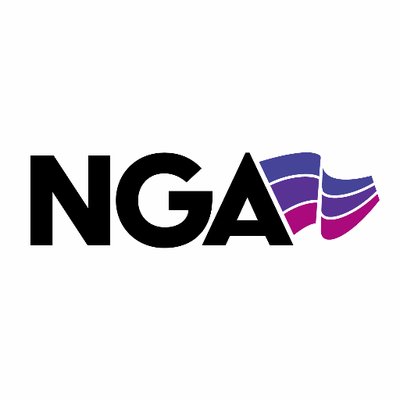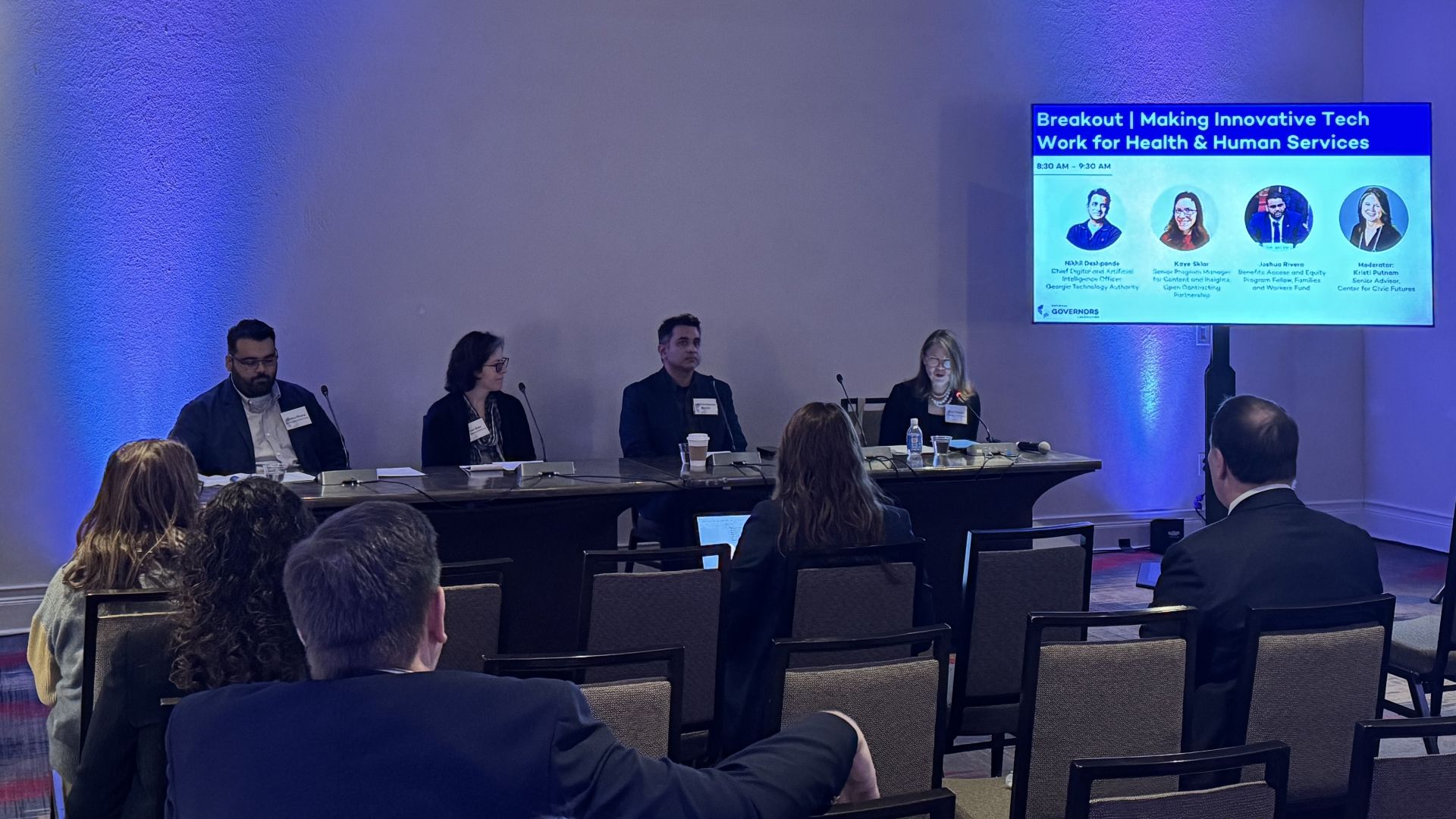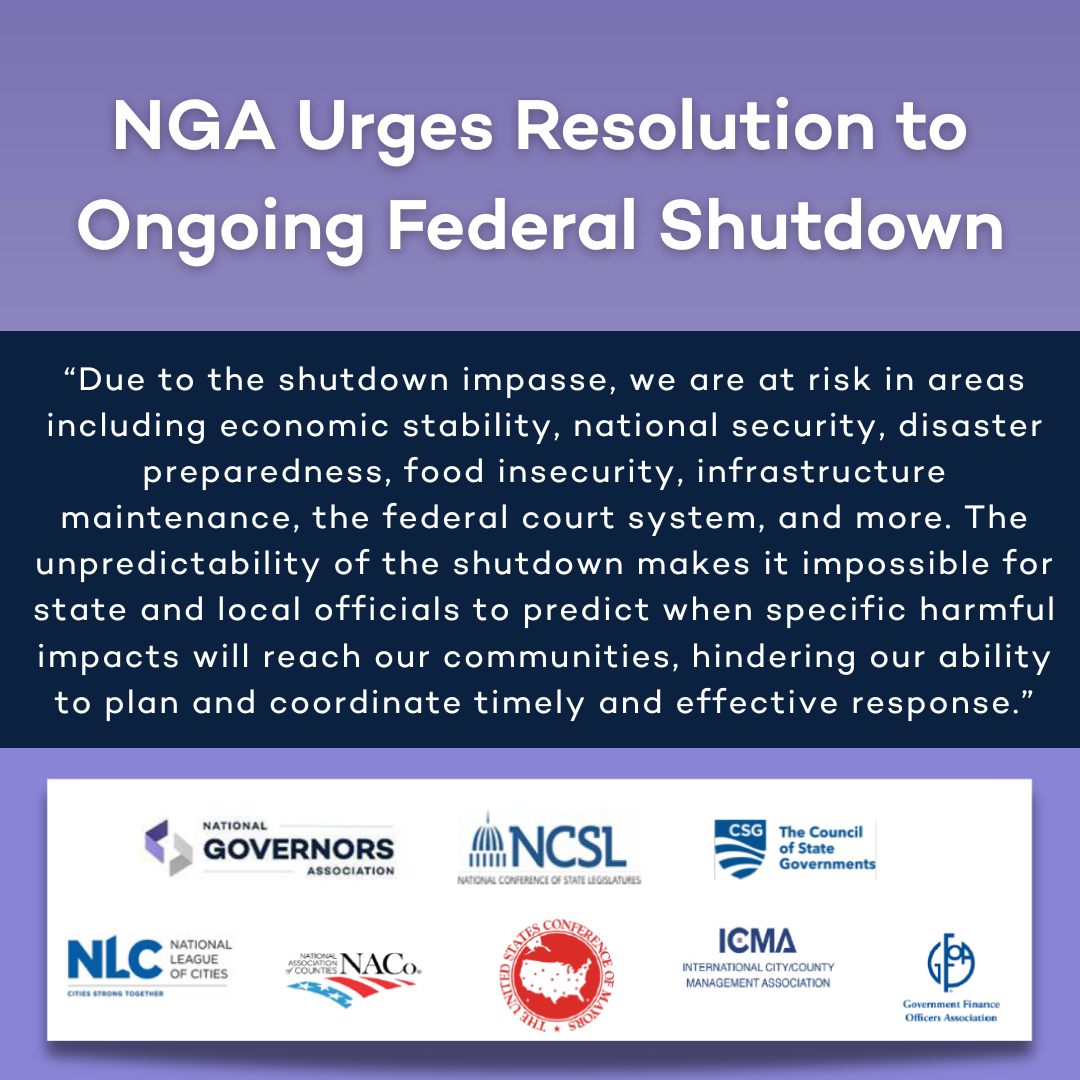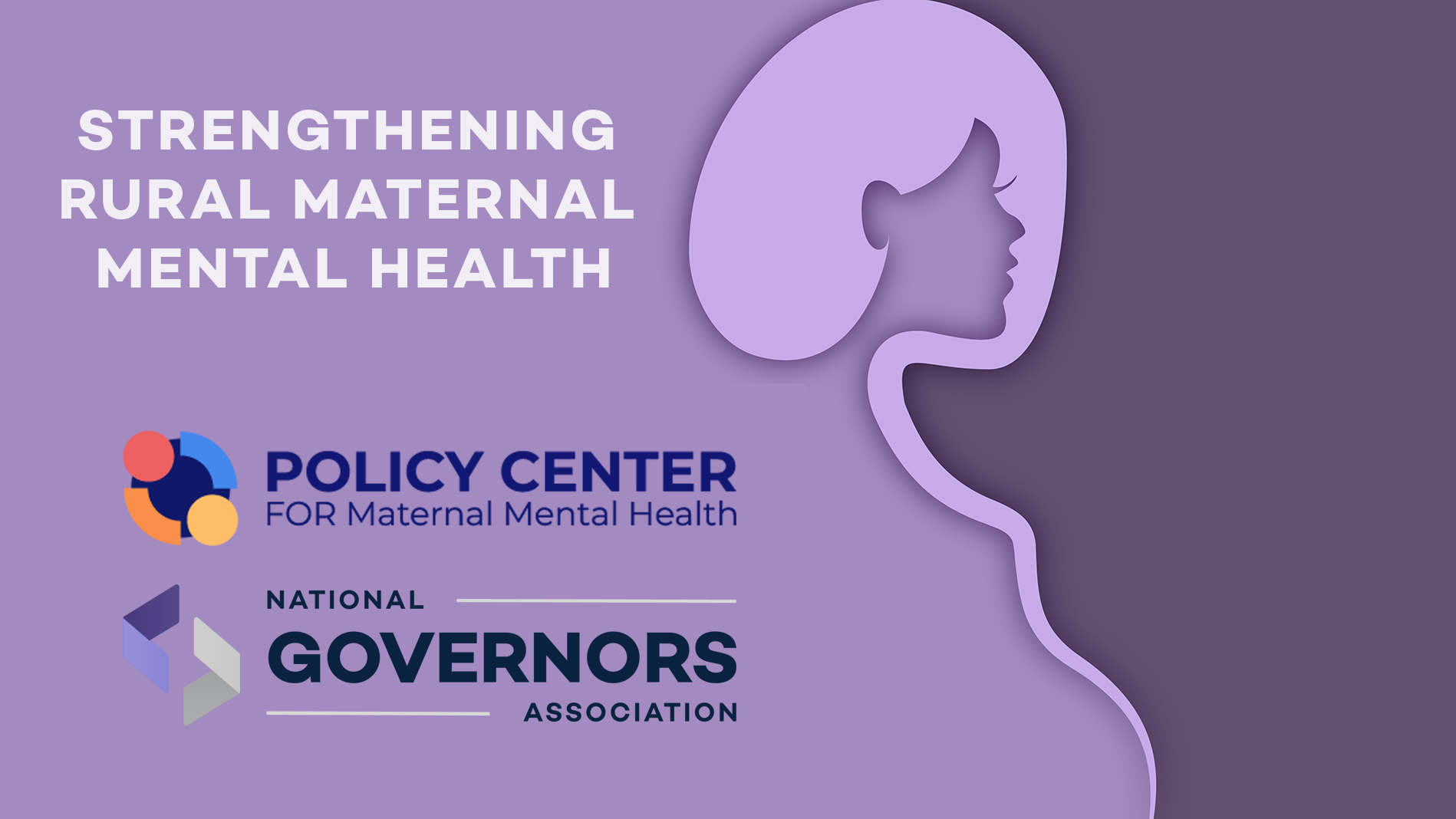(Download)
The Honorable Sam Graves, Chairman
The Honorable Rick Larsen, Ranking Member
Committee on Transportation and Infrastructure
United States House of Representatives Washington, DC 20515
Dear Chairman Graves and Ranking Member Larsen,
On behalf of the Nation’s Governors, we want to express our appreciation for the Transportation and Infrastructure Committee’s bipartisan action on the Fixing Emergency Management for Americans (FEMA) Act. Governors share a strong interest in working with Congress, the FEMA Review Council, and the Administration to achieve meaningful improvements that strengthen the nation’s ability to prepare for, respond to, and recover from natural disasters and other emergencies.
FEMA is an essential partner in national preparedness and response. We value your commitment to enhancing FEMA’s capabilities and preparedness, guided by the core principles of the Stafford Act. A strong, well-resourced FEMA is essential to supporting state and local governments as they support communities and manage disaster response.
FEMA becomes a critical partner when an event surpasses states and territories’ capacity to respond on our own. In FY 2023 alone, 60 disasters received major federal declarations and assistance, while states and territories managed 23,910 incidents independently. But delays in FEMA funding, stringent application requirements, and a complex bureaucratic process often slow down recovery efforts.
The Council of Governors and the NGA Public Health and Emergency Management Task Force have each suggested to the FEMA Review Council that access to planned federal funding in the immediate aftermath of a disaster would help states launch recovery projects quicker, and increased flexibility would allow federal funds to better meet the needs of communities.
Among the many positive provisions of your bill, we particularly welcome those to allow up-front grant funding to expedite repair, restoration, and replacement of disaster-damaged public facilities on a per-project basis, without regard to prior conditions, and based on an estimated cost developed by an appropriately licensed professional. We also support the opportunity to build our communities back better by incorporating mitigation practices that will strengthen our ability to respond.
Overall, we believe that providing Governors the tools to prepare and respond to disasters faster and better will increase cost-savings down the road. The use of a forward funding type-model can also mitigate the chance for duplication of benefits and inherently reduce the administrative burden and costs on the federal government.
Delays in the federal disaster declaration and appeals process leave families, communities, and local governments without the timely support they urgently need. For example, a Missouri disaster program designation was under appeal for more than 125 days without a determination, preventing access to critical resources such as individual assistance, hazard mitigation grants, and even low interest SBA loans. In North Carolina and elsewhere, continuing delays in HMGP approvals undercut both recovery from the historic damage from Hurricane Helene floods and preparedness for future hazards. All of this underscores the importance of advancing the FEMA Act to streamline declarations, speed up appeals, and ensure aid reaches those impacted by disasters without unnecessary delay.
Thank you for your continued bipartisan work on these critical issues. We are eager to work with you and others towards final action in the 119th Congress.
Sincerely,
Governor Mike Kehoe
Missouri
Co-Chair, Pubic Health and Emergency Management Task Force
Governor Josh Stein
North Carolina
Co-Chair, Pubic Health and Emergency Management Task Force












